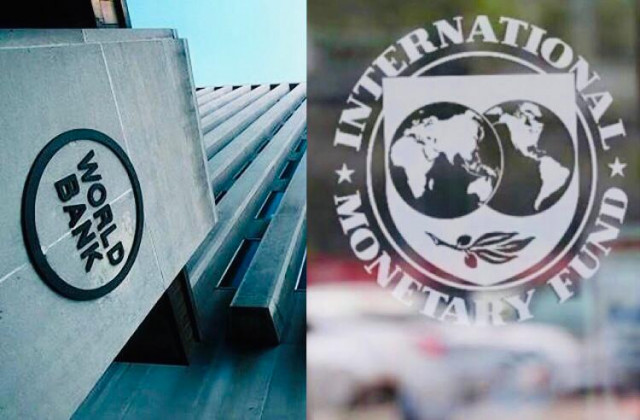The 75-year legacy of IMF and World Bank
IMF, WB struggle to stay relevant in a world where climate change continues to undermine prospects of economic growth

The IMF’s basic purpose is to foster global monetary cooperation and financial stability while the World Bank takes upon itself the responsibility to create sustainable economic growth and help reduce poverty around the world. Both provide financial assistance to poorer countries through concessional lending which often comes with advice on how developing countries can best manage their economics to achieve long-term stabilisation, growth and poverty alleviation.
The overall record of the IMF and World Bank in helping create macro-economic stability and alleviating poverty remains mixed at best. The World Bank claims that global poverty has decreased significantly in the past few decades, but others point to the vast inequalities in the world where 1% of the world’s population owns half the world’s wealth. In recent years, the IMF has been criticised for exacerbating the Southeast Asia financial crisis in the late 1990s, and for being unable to avert the 2008 global financial crisis.
Debt campaigners further accuse the IMF of reckless lending. The IMF has extended nearly $93 billion in loans to developing countries with little capacity to repay them. IMF and World Bank prescriptions of austerity, a reduction of public-sector spending, regressive taxation, widespread deregulation, subsidy cuts and privatisation often do not help indebted countries emerge from the debt trap.
The case of Argentina is one example where combined IMF and World Bank policies did little to boost sustainable growth or address the root causes of indebtedness. The IMF is thus blamed for being primarily concerned with protecting the interests of creditors, increasing its own lending portfolio, rather than helping developing countries. The World Bank’s external debt portfolio for low-income and middle-income countries also continues to rise. The World Bank’s structural adjustment programmes, which curb public spending and promote the privatisation of essential services including the provision of health and education, have also evoked much irk.
While it now acknowledges the threat of climate change, the World Bank has been a key financier of fossil fuel projects over its 75-year existence. Climate groups are demanding that the World Bank stop funding such projects and instead exclusively support alternative-energy projects. Yet, the current President of the World Bank, hand-picked by the US, only focuses on climate adaptation and disaster response, and remains reluctant to address the underlying causes of the problem (presumably due to the domestic politics concerning fossil fuel use).
Both the IMF and the World Bank are struggling to stay relevant in a world where the challenges of climate change continue to undermine long-term prospects of economic growth, and global inequalities have become increasingly glaring. It is, however, time to pay attention to the role of these two institutions in creating some of the problems which they now aim to contend with. The imbalanced governance structures of both the IMF and the World Bank remain heavily influenced by their majority shareholders, who exert disproportionate decision-making power over these supposedly global institutions. To be truly global entities capable of addressing lingering problems of deprivation and contending with the looming threat of climate change instigated by growth-obsessed growth models, these entities need to reform their own governance structures, and revise their growth-first orthodoxy which continues to worsen global power imbalances.
A continued reliance on market-based solutions protects the interests of the moneyed elite and the elite-led private sector, but it is a very lopsided model of “development”, which many argue offers meagre trickle-down benefits.
Published in The Express Tribune, December 6th, 2019.
Like Opinion & Editorial on Facebook, follow @ETOpEd on Twitter to receive all updates on all our daily pieces.













COMMENTS
Comments are moderated and generally will be posted if they are on-topic and not abusive.
For more information, please see our Comments FAQ